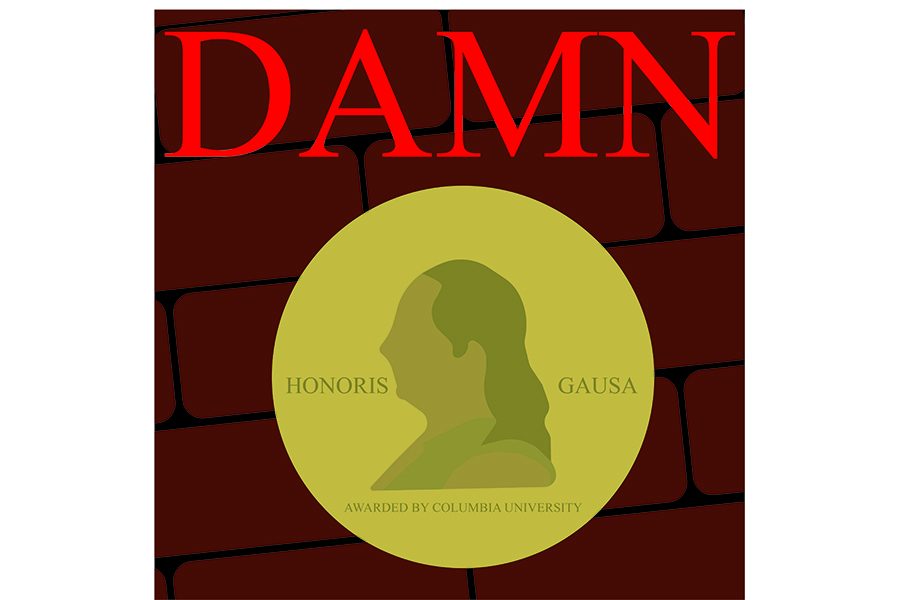Kendrick Lamar Pulitzer win showcases increased respect afforded to hip-hop
On April 16, Kendrick Lamar won the Pulitzer Prize for Music. Acknowledging Lamar’s 2017 album “Damn,” the 2018 award marks the first time a non-classical or jazz musical composition has been recognized. Widely recognized as one of the most dominant forces in the rap industry today, Lamar suffers from no shortage of accolades. Nonetheless, his Pulitzer win represents the slow yet certain acceptance and legitimization of African-American music, namely hip-hop, in mainstream society.
The Pulitzer Prize for Music has historically been an exclusive award, recognizing only a select number of genres. In 1965, for example, the Pulitzer board denied a recommendation by its board to acknowledge jazz virtuoso Duke Ellington, choosing instead not to honor anyone that year. Even after finally recognizing a non-classical piece in 1997, when Wynton Marsalis won for his jazz piece “Blood on the Fields,” the Pulitzers have traditionally narrowly circumscribed the limits of what is noteworthy, even acceptable, music.
Lamar’s win, therefore, is all the more significant. Despite commercial success and critical renown, he has been thrice denied at the Grammy Awards. Whether denied Album of the Year in favor of lesser rappers or benign pop stars, the Compton emcee’s musical exploits have too often been overlooked by the gatekeepers of sound.
In the past year, however, Lamar has proved a host unto himself. His performance at the 2018 Grammys was a tour de force, a damning indictment of both American society and a tortured soul. Similarly, at Coachella, Beyoncé unabashedly paid homage to African-American culture through both the sets and sounds. Uncompromising, unflinching and unyielding in their artistic convictions, they and others in hip-hop have rejected and redefined the established criteria for music, rendering the traditional gatekeepers all but obsolete. Now the premier music genre in the U.S. for the first time, hip-hop, has finally received mainstream respect after being scorned for so long.
In this context, then, Lamar’s Pulitzer win acquires a greater significance. As anyone who has listened to “Good Kid, M.A.A.D City,” “To Pimp a Butterfly” or “Damn” doubtlessly knows, Lamar is an artist pointedly unlike his peers. Though social commentary is embedded inside hip-hop’s very DNA, Lamar’s albums have consistently portrayed a profound level of consciousness and introspection, challenging listeners while avoiding an overly moralizing tone. As works of music, they are contemplative odes; as works of art, they are innovative documentaries, rivaled by few.
Kendrick Lamar, therefore, is a worthy Pulitzer recipient. Having maintained a commitment to thought-provoking music throughout his career, “Damn” is a laudable album, at once commercial and conscious, bombastic and despairing. Lamar, however, is not the only hip-hop artist deserving of society’s commendation or acceptance. Lauryn Hill’s “Ex-Factor” powerfully conveys the heartbreak permeating Taylor Swift’s discography. Nas’ “The World Is Yours” portrays youthful confidence in an oft-hostile world. Tupac’s “Dear Mama” lovingly pays tribute to a patient mother, a feeling native to all.
The passions, hopes and dreams projected in these songs are shared in some sense by all. When a broad genre of music, then, is categorically written off, these all-too-human experiences are rejected with it. Validating them requires the validation of the ways in which these stories are expressed. Hip-hop, as a powerful medium to express millions of American lives, is an integral part of our national identity. It’s about time we realized that.
This is an opinion article and does not reflect the views of The Tulane Hullabaloo. Nketiah is a sophomore at Newcomb-Tulane College. He can be reached at [email protected].
Your donation will support the student journalists of Tulane University. Your contribution will allow us to purchase equipment and cover our annual website hosting costs.

















Leave a Comment